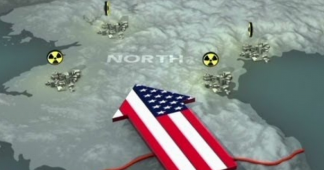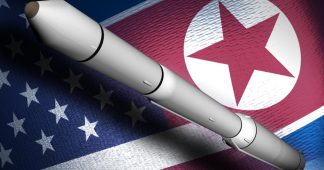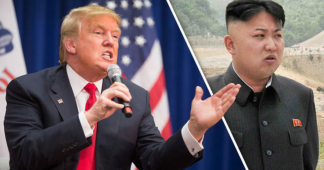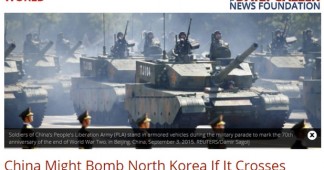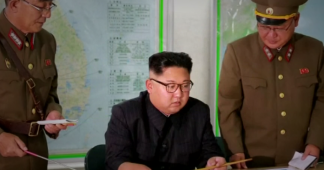For a long time, the Chinese people wrongly believed that China could “control” North Korea and that North Korea’s insistence on developing nuclear capabilities was a result of a failure in China’s diplomacy. The international community has also misunderstood China’s ability in the North Korean nuclear issue.
Such a misconception came as China assisted North Korea in resisting the US in the 1950s and China was supposed to retain some influence upon North Korea. Meanwhile, both China and North Korea are socialist countries. China is far more powerful than North Korea and constantly offers assistance to it and thus would be able to tame the country.
These Chinese have over-exaggerated China’s influence on North Korea. In history, China used to have a profound influence on the Korean Peninsula, but the Democratic People’s Republic of Korea has never been subordinate to the People’s Republic of China.
After China’s reform and opening-up, China and North Korea embarked on different development paths. China’s model has reshaped the country’s understanding of the world, while North Korea has kept its past diplomatic pattern under the pressure of the Washington-Seoul alliance. In 1992, China established diplomatic ties with South Korea, which shocked Pyongyang.
China became prosperous with the drive of the market economy and grew into the world’s second-largest economy. During this period of time, China-North Korea economic relations became market-oriented.
China kept only some part of its assistance to North Korea, and the latter’s infrastructure construction and high-tech technology development did not depend on China.
Before the first North Korean nuclear crisis in 1993, China’s strength lagged far behind that of Russia, France and the UK and it was not able to dominate Korean Peninsula affairs. Development was the biggest task of China at that time.
After the Korean War, North Korea became a highly independent country. It is on an equal footing with China. China’s increasing national strength did not constitute the decisive factor in Beijing-Pyongyang ties and North Korea did not hope to solve its security dilemma by relying on China. Witnessing that the regimes of some non-nuclear small countries had been overthrown, it took on the mistaken and extreme path of owning nuclear arms for self-defense.
Long before China grew stronger, it had lost the chance to reshape the peninsula’s pattern. The motivation of North Korea’s pursuit of nuclear capabilities came from the long-term military pressure from the US and South Korea.
North Korea’s development of nuclear capabilities is the result of the distorted geopolitics in Northeast Asia, and North Korea itself and the US are to take the most blame. Some Chinese people overestimate China’s strength and have an inaccurate understanding of international relations, contending that China’s diplomacy on North Korea has failed.
In the chaotic peninsula situation, no party is the winner. North Korea has suffered the most losses so far, and the nuclear issue is unmanageable by the US and South Korea. China needs to face up to reality and seek a least-worst result.
Published in http://www.globaltimes.cn
